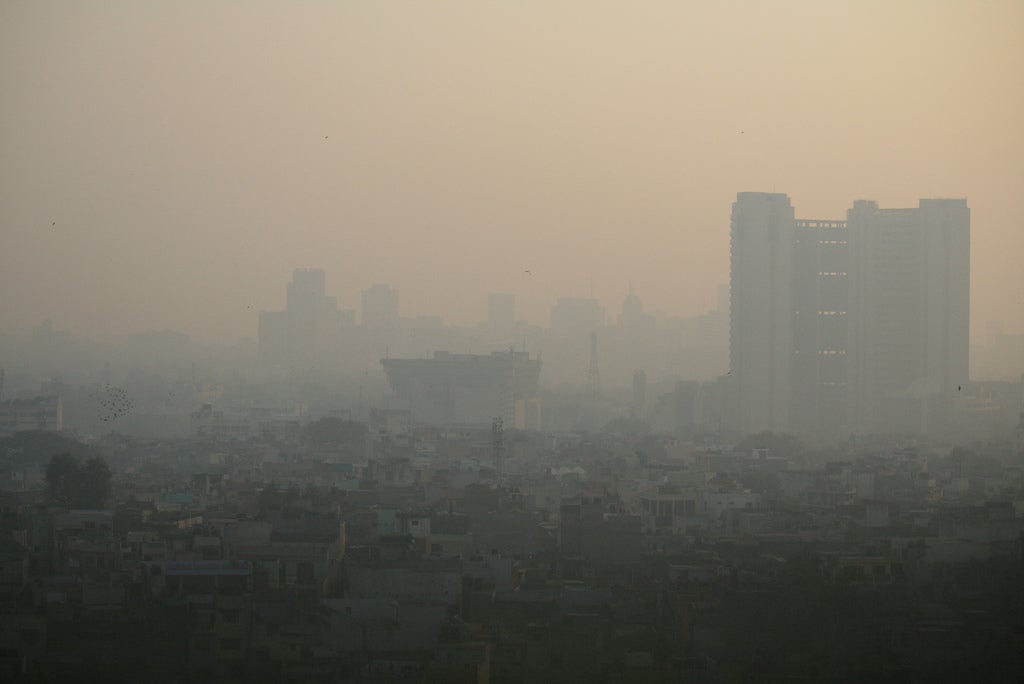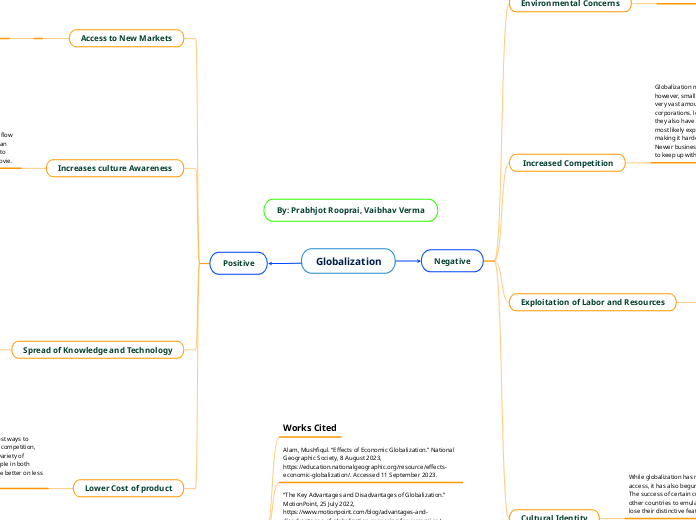Globalization
Negative
Environmental Concerns
With the accelerated transformation that globalization has provided, many environmental hazards take place. One of the more obvious ones is the increased greenhouse gas emissions that planes and boats release.
Pollution is also a major factor. many third-world countries release pollutants in the water which affects their health along with the wildlife. This has also dramatically affected the pollution of animals and fish.
The increased malfunctioning led to air pollution in some countries to the point where the sky is too thick for people to breathe while they walk. This type of air pollution can lead to respiratory problems in the long-term
Lastly, the risk of invasive species has also increased due to the high transportation rates which affects the wildlife native to the country. this is a significant threat to biodiversity, as these invasive species become the predators and change the food chain.

This is an image of a third world country and it shows how low the visibility is let alone the air quality.
Increased Competition
Globalization might be beneficial for a country's wealth, however, smaller/newer businesses have to compete with a very vast amount of companies including more giant corporations. looking at it from the Consumer's perspective they also have a variety of options to choose from and will most likely expect higher quality products at a lower price making it harder for smaller business to sell their products. Newer businesses will have to invest more amount of money to keep up with their competitors

This image shows how businesses always compete with each other and how people who start late feel left behind or have to exert more energy/money to keep up with the rest.
Exploitation of Labor and Resources
Wealthy Organizations or nations take advantage of the trade agreements in developing countries to exploit weak labour and environmental laws. For instance, many companies like Old Navy follow a common trend called fast fashion in which they capitalize from third-world countries like Bangladesh to make profits - Fast fashion is a business model in which companies recreate clothing that is in demand and mass produce it at a low cost. This type is only possible with low labour costs and fast shipping times.
Wealthy Countries also capitalize on inadequate environmental regulations that third-world countries may have by importing metals at a lower price range.

This picture shows how people capitalize on cheap labour to make their profits without having to witness or pay the consequences of it.
Cultural Identity
While globalization has made foreign countries easier to access, it has also begun to meld unique societies together. The success of certain cultures throughout the world caused other countries to emulate them. But when cultures begin to lose their distinctive features, we lose our global diversity.

This image shows how globalization can lead to the loss of culture as when society start to meld together it losses the distinctive feature their culture.
Positive
Access to New Markets
Businesses gain a great deal from globalization, including new customers and diverse revenue streams. Companies interested in these benefits look for flexible and innovative ways to grow their business overseas. A global employer of record (EoR) makes it easier than ever to employ workers in other countries quickly and compliantly. This means that, for many companies, there is no longer the need to establish a foreign entity to expand overseas.
This picture uses transport vehicles to show how goods are transported across the world in a short period. It also shows how money flows across the world by making a deal or sale from one side of the world to the other.
Increases culture Awareness
Globalization makes it easier than ever to access foreign cultures, including food, movies, music, and art. This free flow of people, goods, art, and information is the reason you can have Thai food delivered to your apartment as you listen to your favourite U.K.-based artist or stream a Bollywood movie.

This image shows how we are all able to be connected because of globalization. The picture portrays many hand of different colours around the globe showing the connection we all have
Spread of Knowledge and Technology
Many countries around the world remain constantly connected, so knowledge and technological advances travel quickly. Because knowledge also transfers so fast, this means that scientific advances made in Asia can be at work in the United States in a matter of days

This image shows how we can share our thoughts and ideas with the assistance of our technological advances. We can look at other's perspectives to allow us to make these advancements even faster
Lower Cost of product
Globalization allows companies to find lower-cost ways to produce their products. It also increases global competition, which drives prices down and creates a larger variety of choices for consumers. Lowered costs help people in both developing and already-developed countries live better on less money.

This image display's how globalization can cause prices to go down due to lower production costs and competition. Resulting in better quality products at cheaper prices for the consumer
citations
Works Cited
Alam, Mushfiqul. “Effects of Economic Globalization.” National Geographic Society, 8 August 2023, https://education.nationalgeographic.org/resource/effects-economic-globalization/. Accessed 11 September 2023.
“The Key Advantages and Disadvantages of Globalization.” MotionPoint, 25 July 2022, https://www.motionpoint.com/blog/advantages-and-disadvantages-of-globalization-preparing-for-expansion/. Accessed 11 September 2023.
Stobierski, Tim. “4 Effects of Globalization on the Environment.” HBS Online, 15 April 2021, https://online.hbs.edu/blog/post/globalization-effects-on-environment. Accessed 11 September 2023.
Subto“Why invasive alien species are a problem.” Canada.ca, 12 May 2017, https://www.canada.ca/en/environment-climate-change/services/biodiversity/why-invasive-alien-species-are-problem.html. Accessed 11 September 2023.
pic
